Science Walks in Dortmund Nordstadt
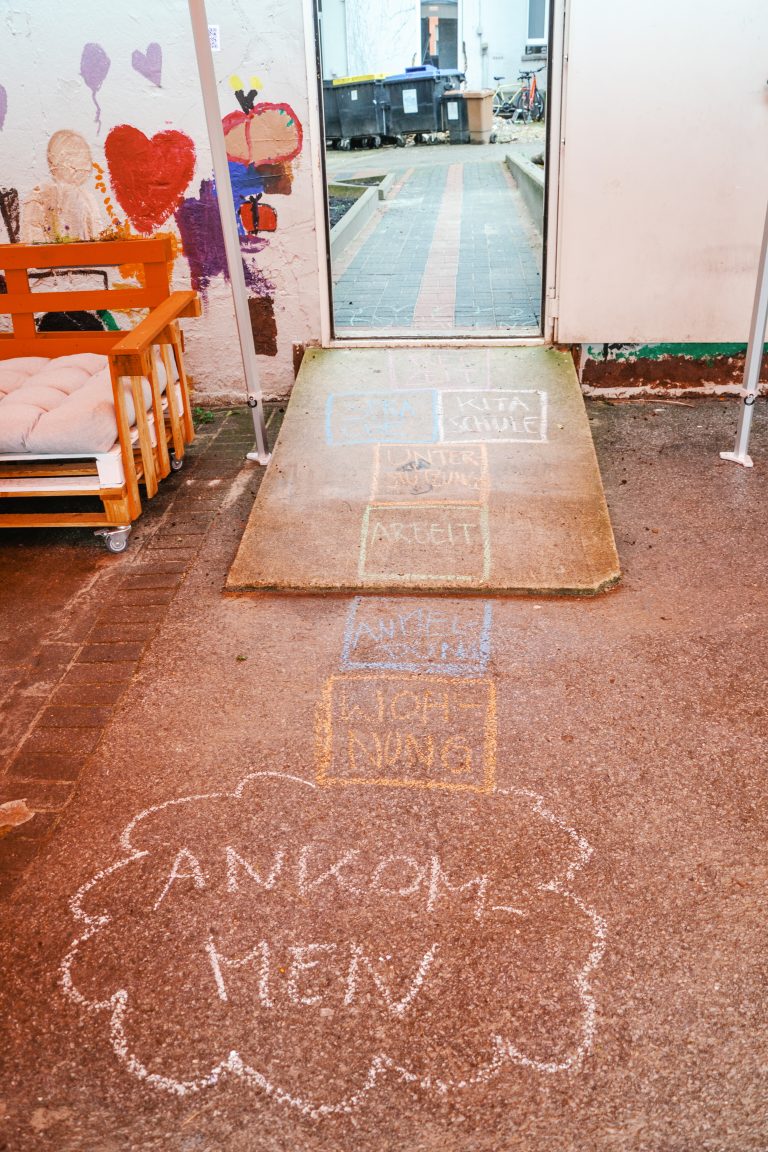
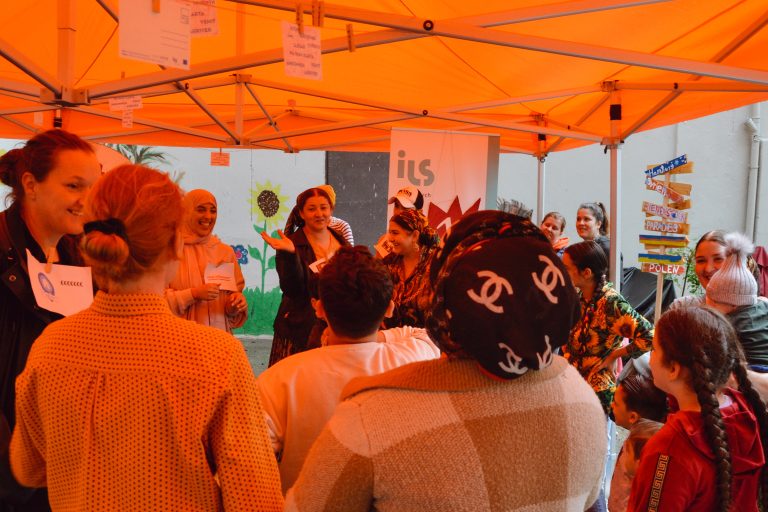
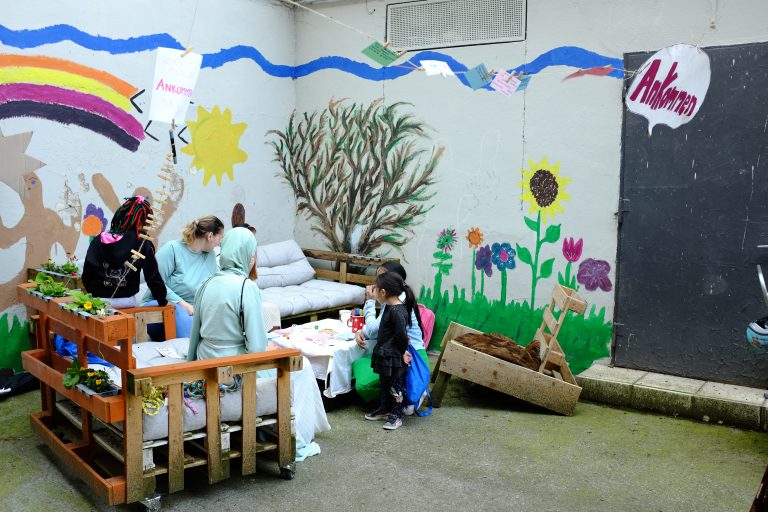
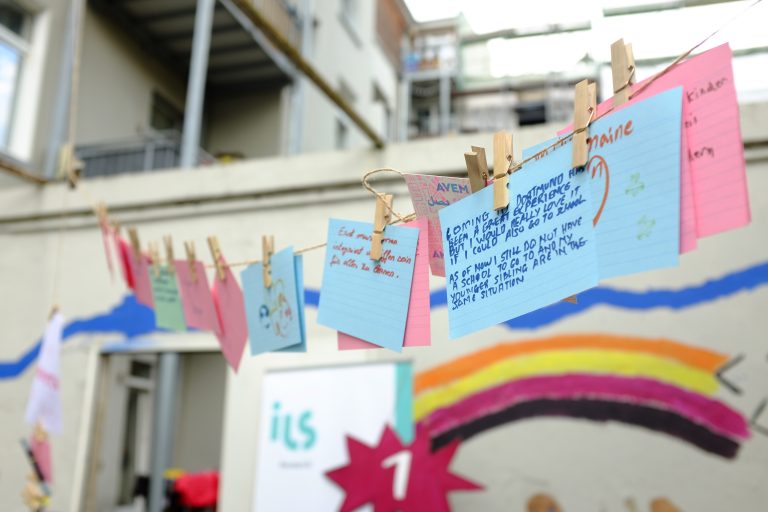
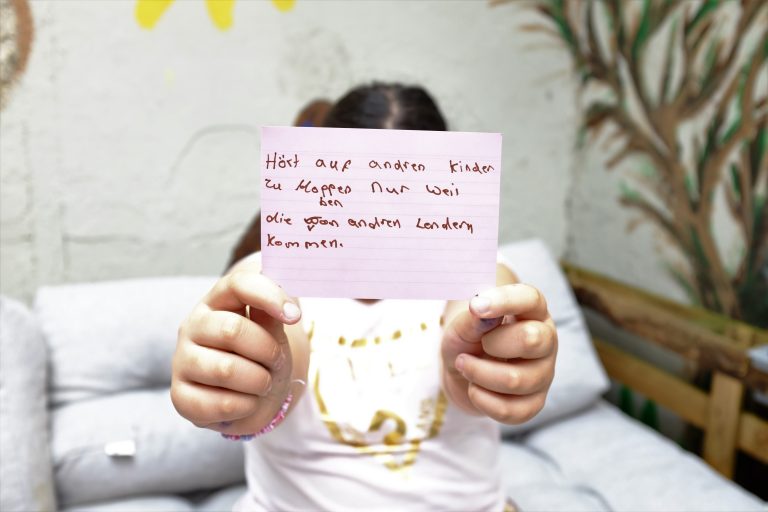
Research often remains in the university, the classroom or the journals. But what about bringing research (back) to the people and places that are studied? This was the idea, chance and challenge of the so-called “Science Walks” in Dortmund’s Nordstadt – and our AIMEC Dortmund team participated. In September 2022 and May 2023, we joined the two first editions of the Science Walk together with other scientists and many more “everyday experts”.
Questioning the unilateral relationship between researchers and researched
For many decades, Nordstadt as an arrival district and an urban hotspot has been an object of research for a wide range of disciplines. Many social dynamics can be observed and analysed here and innovative social practices can be tested. However, residents, practitioners and researchers alike have started to question the unilateral relationship between researchers and the district. Nora Oertel-Ribeiro from the Nordstadt-based socio-educational space Raum vor Ort initiated the Science Walks and says that research should engage more with the people and places that are studied. She asks:
How do people in Nordstadt actually benefit from the research that takes place in their everyday life spaces? Does / can a research project make a difference to people’s lives? And what are the ways to get people and their neighbourhoods out of the role of research objects to become active subjects in the context of research projects and, ultimately, social discourses?
Although in our AIMEC project, we are very engaged in fieldwork and impact activities, it continues to be a challenge to leave our “ivory tower” and to find an engaging and accessible way of communicating our research.
Building on residents’ experiences: Arrival and its multiple facets
For the two editions of the Science Walks, our research team was supported by community mediators. They not only translated but also accompanied the whole process and co-(re)presented the activities during the events. We are very thankful to Zita Gabor, Sumaya Mohamed, Mihaela Ramona Moldoveanu and Yosra Benabdellah for their great ideas, support and engagement!
Together, we tried out playful and dialogical methods to make people reflect on arrival and its conditions and to acknowledge their own expertise as people who experience(d) arrival: During the first edition in September, children’s games such as hopscotch and tug of war invited the visitors to discover different fields of arrival (and their related challenges) and collectively think about actors and structures that support newcomers. The games also allowed the participants to feel power relations and to share their own experiences. During the second edition in May, we adopted a more dialogical format. We created a space of encounter where we explained (our) research and invited people to share their thoughts, experiences and wishes related to arriving in a new place. The drawings and texts, created by participants, were displayed and constantly added new facets to the topic of arrival. It showed how arrival can be both: a joyful and a painful experience (sometimes at the same time).
Research (communication) as a playful and convivial experience
The events assembled a whole range of scientific activities following a very broad understanding of (citizen) science: From a collaboratively coded and designed sound wall to quizzes and installations in braille, from Roma skirt techniques and physical experiments to our arrival games – the Science Walk had a lot to offer. In addition to research institutes, there were civil society organisations as well as individuals who participated with interactive activities.
Despite difficult weather conditions, the two events were very successful. Many visitors came and enjoyed the nice and curious atmosphere in the courtyards where the event took place. Residents were able to become familiar with (social) science – and scientists were able to connect with local residents. Thus, the event created new cognitive and also social relations. Due to the good feedback, the organisers plan to repeat the event next (and potentially every) year. We would definitely like to be part of an upcoming edition!


